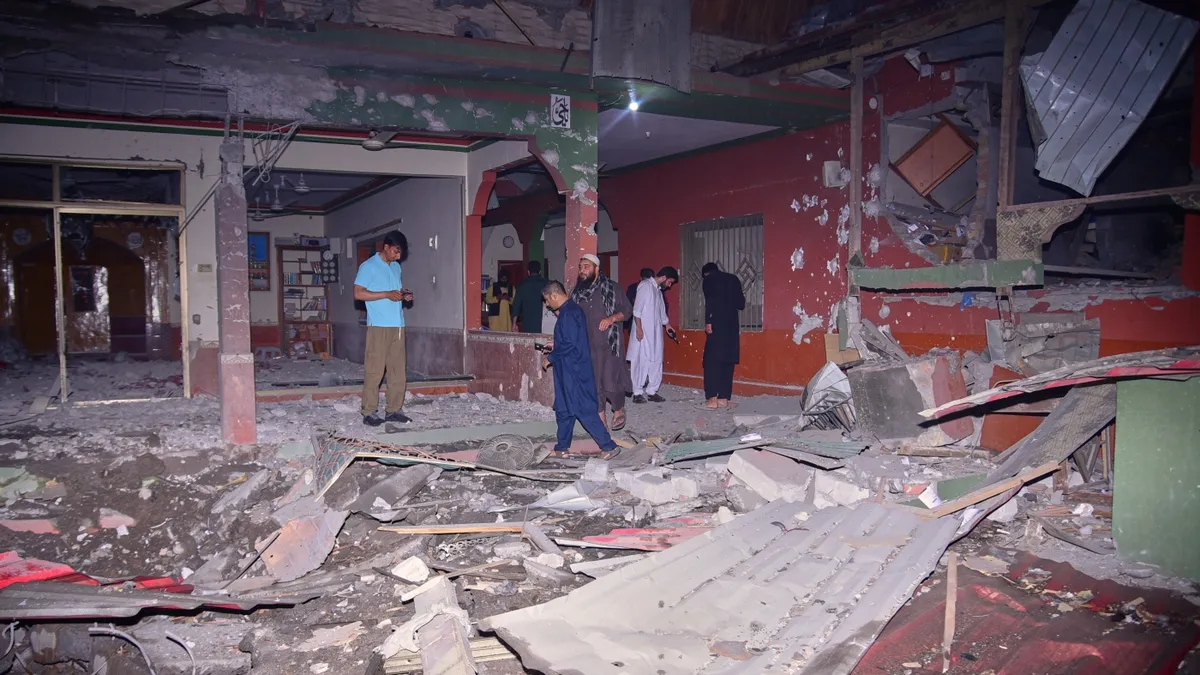
In a significant escalation of tensions, India executed multiple strikes across Pakistan early Wednesday, marking the most extensive military action in decades. This operation was described by New Delhi as a direct response to a tragic incident that occurred in India-administered Kashmir on April 22, which resulted in the deaths of at least 26 tourists and injuries to several others. India asserted that the group responsible for this attack operates as a proxy for the Pakistani military, a claim that Pakistan vehemently denies.
The government of Pakistan has labeled the strikes as an act of war, and reports from The Associated Press, citing the Pakistani military, indicate that 31 individuals have lost their lives due to these airstrikes. In a statement, India's military emphasized that the strikes were aimed at targeting terrorist infrastructure and were conducted in a focused, measured, and non-escalatory manner. They also clarified that no Pakistani military facilities were targeted during these operations.
Indian Colonel Sofia Qureishi, during a news briefing, reiterated that the locations chosen for the strikes were selected with the intention to minimize damage to civilian structures and avoid civilian casualties. However, the most devastating strikes reportedly hit a mosque in the southern Pakistani town of Ahmedpur East, resulting in the deaths of 14 people, including family members of Masood Azhar, who leads the Jaish-e-Mohammed, a group designated as a terrorist organization by the U.S. that has been implicated in previous attacks on India.
In light of the escalating conflict, United Nations Secretary-General António Guterres has called for both nations to exercise restraint, stating that the world cannot afford a military confrontation between India and Pakistan. Approximately half of the Indian strikes focused on locations within Pakistani-held Kashmir, a region that both countries administer but claim in its entirety.
Pakistan reported that one of the targets was a hydropower dam, raising concerns given that India recently suspended a long-standing water treaty dividing six rivers between the two countries, which are both facing water scarcity. Pakistan's representative to the U.N., Asim Iftikhar Ahmad, warned that this treaty's suspension presents an existential threat to the Pakistani populace.
In Kotli, a town in Pakistani-held Kashmir, the sound of airstrikes sent students fleeing from local late-night food spots. One projectile struck a residence near a mosque linked to Jaish-e-Mohammed, tragically killing a 19-year-old university student and her 12-year-old brother, according to medical official Muhammad Nasrullah Khan.
Other airstrikes occurred in Pakistan's Punjab province, particularly in a town named Murikde, located approximately 30 miles from Lahore, the nation's second-largest city. According to experts, India has not conducted strikes this deep into Pakistan since 1971. Michael Kugelman, a regional expert, noted the unprecedented scale and intensity of these recent military actions.
In preparation for potential conflict, Indian authorities have conducted numerous emergency drills nationwide to equip first responders. In one drill in Mumbai, volunteers simulated military shelling, while similar exercises in New Delhi led to temporary power outages in Parliament and major government offices.
Following the strikes, high-ranking officials in Pakistan condemned India's actions as unprovoked, cowardly, and unlawful. They declared that Pakistan reserves the right to respond in self-defense at a time and manner of its choosing. Currently, Pakistan's military is already engaged in combat against a local Taliban offshoot and facing a violent insurgency in Baluchistan, which it claims is supported by Indian intelligence.
As tensions continue to rise, Praveen Donthi, a senior analyst for India with the International Crisis Group, urged for more forceful intervention from external parties to prevent further military escalation. He expressed concern that if the international community, particularly the U.S., does not intervene promptly, the current situation may just be the beginning of increased military confrontations.
In the wake of these developments, U.S. Secretary of State Marco Rubio stated that he is closely monitoring the situation between India and Pakistan. President Trump also expressed his hope for a swift resolution, referring to the attacks as a "shame." The ongoing conflict highlights the fragile nature of peace in the region and the urgent need for diplomatic efforts to de-escalate tensions.
This situation remains dynamic, with potential ramifications for both countries and broader international stability. As the world watches closely, the need for dialogue and restraint is more critical than ever to prevent further loss of life.